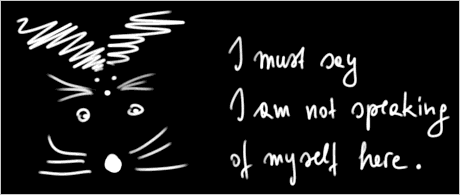Constructivism is easy to explain: Don’t!1
Assumption
The basic assumption (or condition) is that there is you. From this it follows that there’s something which — or somebody who — is not you.2
 Corollary
Corollary
In order to know you need to know about what is not you. Thus, whatever you want to know about what is not you needs to find some way into you.
The English language has a huge number of terms for these “ways”: Learn, observe, perceive, watch, hear, realize, comprehend, get, … you name it. Their essential aspect is that something is happening (on the way). Let’s call this the “process of perception” (but you may call it whatever you prefer).
That’s it.
In other words, constructivism acknowledges that — if you assume that there is you and something or somebody who is not you — there is something in between. For instance, a medium (that needs to be passed), some time (that goes by), an act of observation, sensory receptions, a recognition, maybe a translation, a calculation, or a memorization, and probably some thinking. Or else, you wouldn’t be able to know about what is not you.
The visual system (like of human beings), as well as any other sensory system, or a close look into a human eye illustrates the multitude of processes which is involved with the “process of perception”.
Varieties of constructivism
The specifics of the “process of perception” are interpreted and described in varying ways by the many facets of constructivism. Also, some forms of constructivism confine their theories to less general distinctions of you versus what is not you (e.g. social constructivism examines mostly social relations like you and a friend, groups of people, or societies, and how those perceive each other and everything else).
[Radical constructivism] starts from the assumption that knowledge (…) is in the heads of persons, and that the thinking subject has no alternative but to construct what he or she knows on the basis of his or her own experience.
— Ernst von Glasersfeld3
Concluding
Constructivism offers ways of perceiving perception.
If you prefer other perceptions of constructivism, welcome aboard.
—-
1) The presented text is no explanation apart from the fact that you might view it as a plain representation flattened out on a computer screen or paper.
2) If for whatever reason you cannot agree here, either because you think there is only you, or because you think nothing exists independently of you, then you can stop reading since you are already thinking in a most constructivistic manner.
3) Ernst von Glasersfeld: Radical Constructivism. A Way of Knowing and Learning. London: Falmer Press 1995. Page 1.

 Corollary
Corollary